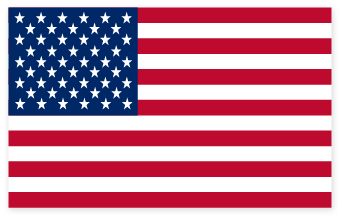It depends on how he is called to the Torah. If he is called to the Torah “Moshe Meir Nehorai” then the Ketuba is fine. If he is only called Moshe Nehorai, then it would have been better to leave out Meir since no one uses that name or to put it in parenthesis. However, since a Ketuba is not as stringent as a Get with the names then Bdiavad, since we know who we are talking about it, is fine and don’t say anything.
Explanation:
The Mishna in Gittin 34b: Originally it was common for the couple to change names and change cities and to write them in the Get. Rabban Gamliel Hazaken decreed that we must write in the Get “ [man’s name] and ‘other name’ which he has [her name] and ‘other name’ which she has” to make the world run better.
The Gemara says: That woman who most people call her Miriam and some call her Sarah, Nehardai ruled to write in the Get “Miriam and any other name she has but not Sarah and any other name she might have.”
Another Gemara in 351 says: A man who some call him Achah and some call him Ayah Mari you should write in the Get “Achah bar Hadaya who is called Ayah Mari.” The Rishonim argue whether to write both names or is it enough to write one name and then add the phrase “and any other name which he has.”
Tosfot 34b D”h Vechol quotes a machloket. The BeHag says we have to write in the eGet “And any other name “ specifically.
Rabbeinu Tam asks, “This can cause a problem if he only has one name and in the Get it says “And another name he has” which implies the person in the Get has more than one name and it’s not clearly a Get from him. Rabbeinu Tam understood that we must write out every name the person has not the phrase “And any other name.” one should write [the man’s name] who is called [the second name] as it says by Achah bar Hedaya.
The Rif (Gitin 45b dapei Harif) Rambam (Hilchot Geirushin 4:12), the Ran on the Mishan al rule like the Behag that you write his man name and then “And any other name”.
The Shulchan Aruch Even Haezer 129:1 writes: If one of the couples has two names we write the name we normally call them and we recognize more, then write “and any other name he has is divorcing [woman’s name] and any other name she has.”
The Rema rule like Rabbeinu Tam: Some say that we must not write the words “and ‘other name’ rather you write the main name who also called the second name.
(The minhag in Eretz Yisrael even by Sefardim is to write out the names but if they didn’t it is Ok but by Ashkenazim the get is Passul.)
So it is a good thing to write al the names which he is known by in a Get, so too in a Ketuba. So to write Moshe Nehorai is good.
Now let us discuss whether Meir is a name or not.it depends if he is called the Sefer Torah for an Aliyah with that name.
The Bet Shmuel (AH 129 at the end) writes”If the way he signs and how he is called to the Torah is different he doesn’t have a specific reason why he signs it that way, then we go after the name he gives when be called the Torah. The Chemdat Shlomo writes, “don’t think that he means if he has a reason why he signs his name that it is more important because the Taz writes that If someone ‘s name is Eliezer and signs Elazar we don’t care how he signs just how he is called. We don’t even have to list his name in the Get. Just if he knows why he signs that name (Meir) then we should write ‘Who is also called Meir’. That is not his main name.
The Get Pashut writes that we must check how he signs his name on Shtarot or is called to the Torah not how he signs on regular documents. In a case where he adds one more name for getting an Aliyah that he would agree to the Chemdat Shlomo. Therefore you need to check if he uses Meir when he gets called to the Torah, not what he signs.
What if he is only called by one name out of two names he is called to the Torah.
The Beit Meri ruled that you should write the name he gets called to the Torah.
The Torat Gitin writes that one should write the first name and then who is also called and then the second.
Mahar”z Margoliot writes that you should write however he is called to the Torah then “who is also called”the first name.
According to the Beit Meir, we should write just, however, he is called to the Torah.
According to the Torat Gittin, we should write the first name Moshe who is called Meir Nehorai.
According to R’ Z Margoliot, we would write however he is called to the Torah who is called Moshe.
So you must pay attention the next time he gets an Aliyah in the Yeshiva (ask the Gabbai maybe).
(You do not have to write the name Moshiko since it is a nickname from when he was a child and the Shulchan Aruch rules (129:15) that since it is a nickname that is derived from his first name you don’t have to write it. Any way only his family calls him that so it is fine to leave it out.
A Ketubah is much more lenient than a Get when it comes to names. Since by a Get even if you wrote Meir in the and he is not called up that way, he is just called that it would be Bdiavad Ok, by a Ketuba putting all the names in is fine. As Long as it is clear who we are referring to then the Ketuba is OK.



